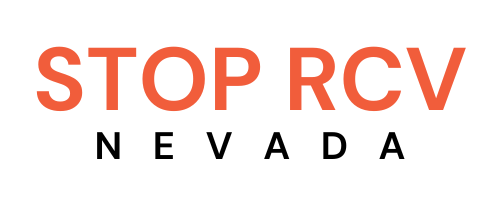Several Nevada Republicans and Democrats believe that ranked choice voting (RCV) causes voter confusion. Amid a divisive presidential race, RCV is cause for common bipartisan concern. Senator Jacky Rosen (D) worries that RCV could “make casting a ballot more confusing and time-consuming, could lead to increased errors that cause eligible votes to be thrown out, and disproportionately impact communities of color.” Several Nevada Republicans also publicly oppose RCV, among them Adam Laxalt and Mark Amodei.
Nevadans of all political affiliations should share their concern. RCV has several drawbacks that will adversely impact Nevada’s voting system, by disenfranchising voters, diluting the power of each vote, and reducing political participation. If voters approve this complicated system of vote ranking, vote counting and recounting in November, these changes will be permanent.
RCV’s Unintended Consequences
When using RCV, voters rank their candidates by preference. If no candidate achieves a majority of first-choice votes, tabulation eliminates the candidate with the fewest votes. The votes from the eliminated candidate are reallocated to the next choice on each voter’s ballot. This process continues until a winner emerges.
RCV is supposed to increase political inclusion, but it only causes confusion. This confusion will disengage voters from the political process. Less interest in the political process will result in less representative outcomes in Nevada elections. Fewer parties will compete in elections, gradually eroding the political landscape. Nevada is a state with diverse communities. RCV will slowly silence their voices until most lose political representation.
Several US states implementing RCV have realized that the complex system of ranking candidates discourages voters from casting their ballot.
Take Alaska: In the 2022 state election, numerous voters failed to fill out their ballots correctly, as they were unfamiliar with the RCV system. This led to the Electoral Commission discounting a high number of ballots. Each of these votes was lost, and the result of that election is likely skewed. Alaska’s courts are currently deliberating a repeal of RCV.
Another example is New York City. During the 2021 mayoral primary, errors in vote counting delayed the results, causing confusion about the voting process and casting doubt on the outcome.
A Confusing Voting System Will Confuse Voters
Nevadans enjoy a very straightforward voting system: one vote for one candidate. The voting process is self-evident. RCV elections in several US states, however, saw a high number of ballots “exhausted,” because voters, who are used to casting only one single vote, did not rank correctly or made errors in marking their ballots. Their votes will be discounted, leading to a misrepresentation of the result.
Voters must be familiar with the political platforms of many candidates to make an informed decision when ranking preferences. But Nevada residents are occupied with their daily responsibilities—putting food on the table for their families, growing their businesses, raising children, and caring for loved ones. Many simply do not have the time or mental bandwidth to research beyond their preferred candidates. Whereas the one-person-one-vote system levelled the playing field for Nevadans, RCV will favor the privileged.
A Journey Without Clear Destination
RCV is like booking a flight to your dream holiday destination. At the airport, the airline informs you that your preferred destination may be unavailable. You and other travelers must now rank four more destinations, each by preference. If the flight to your top choice is overbooked or gets canceled, the airline reviews all guest choices in several rounds of vote counting to determine your flight’s destination. Not knowing where the journey will take you is problematic. Did you pack the right clothing? Do you have all the required vaccines?
Before Nevadans head to the polls this November, talk to your friends and neighbors to share your concerns about RCV. Make sure they understand the potential risks and confusion associated with RCV. Let them know that you value Nevada’s political diversity and that you worry about RCV destroying fair and equal representation. Ranked voting is too confusing, and elections are too important to leave room for guesswork.
